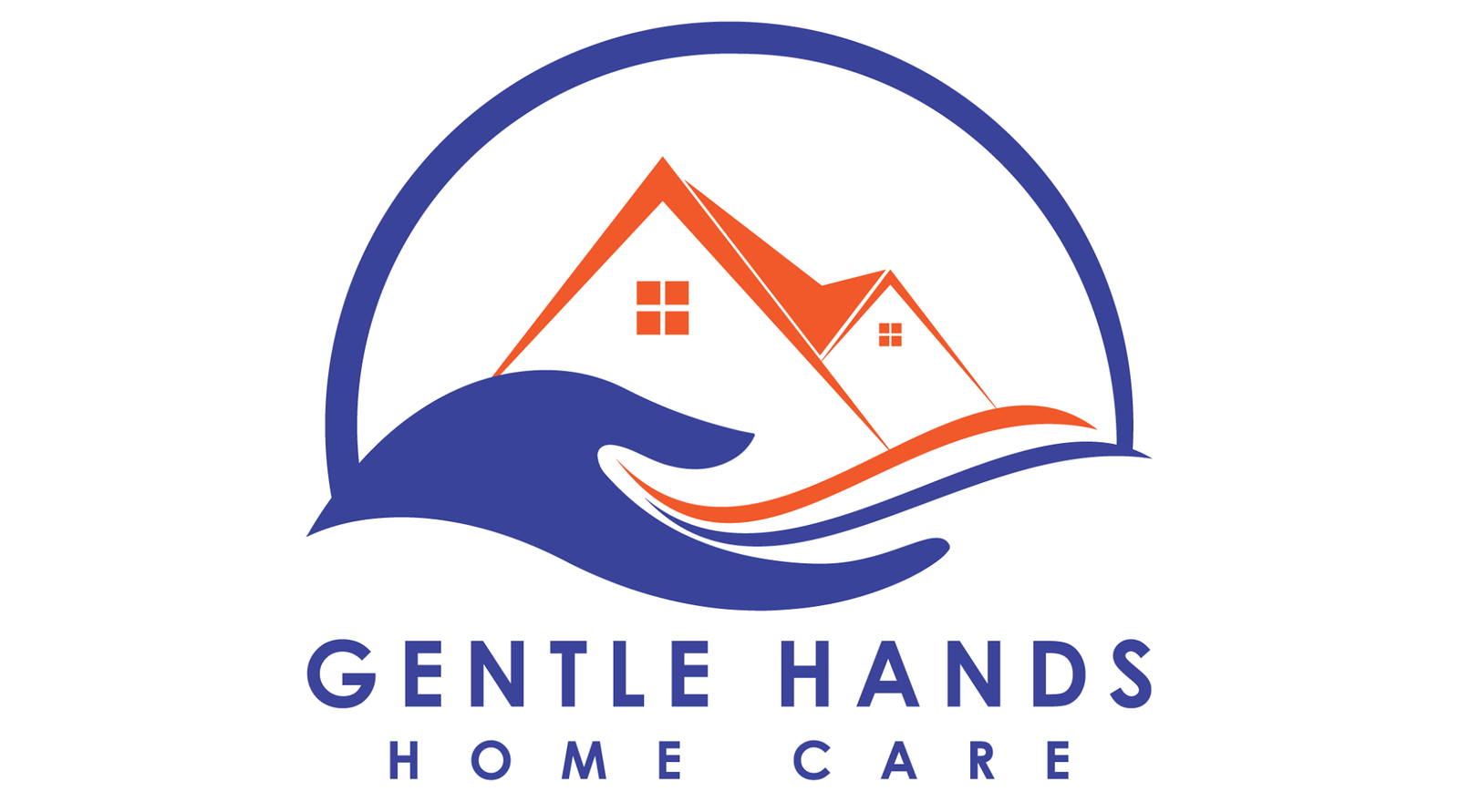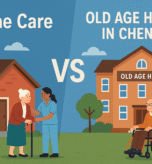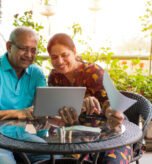Imagine recovering from surgery or managing a chronic illness—not in a hospital bed, but through personalized support at home, monitored in real-time by AI-driven health systems, supported by wearable tech, and guided by virtual care assistants. This is no longer a futuristic fantasy. It’s 2025, and technology in home care services in Chennai is revolutionizing the way patients heal.
In a city renowned for its vibrant tech ecosystem and growing healthcare needs, Chennai is witnessing a seismic shift in how elderly care, post-operative recovery, and chronic disease management are delivered—all from the comfort of home. Technology in home care services in Chennai, powered by IoT, telemedicine, AI, and robotics, is reimagining the future of healthcare.
The Rise of Smart Home Healthcare
Home care in 2025 is defined by two words: personalized and connected. Thanks to advancements in medical technology and digital infrastructure, patients in Chennai are now empowered to receive high-quality care without ever having to step into a hospital.
Key Technologies Shaping Home Care Today:
- Remote Patient Monitoring (RPM)
- Artificial Intelligence & Predictive Analytics
- Telemedicine & Virtual Consultations
- Robotics and Assistive Devices
- Wearable Health Tech
- Mobile Health Apps
- Smart Home Integration
Let’s break each one down.
1. Remote Patient Monitoring (RPM): Care Without Walls
RPM uses internet-connected medical devices to monitor a patient’s vital signs in real time. In Chennai homes, devices like:
- Digital BP monitors
- Glucometers
- Pulse oximeters
- ECG patches
- Smart thermometers
…are transmitting data directly to doctors and caregivers via secure cloud platforms.
In 2025, these systems flag abnormalities instantly – like a sudden spike in blood sugar or a drop in oxygen levels – triggering alerts for intervention before a crisis develops.
2. AI and Predictive Analytics: From Data to Decisions
AI isn’t just interpreting data; it’s predicting health trends. Based on a patient’s medical history, genetics, and live data from wearable tech, AI systems now forecast:
- The likelihood of hospital readmission
- Upcoming symptoms
- Medication reactions
- Progress or delays in post-operative recovery
For chronic disease patients, this means proactive care instead of reactive hospital visits. Chennai’s hospitals and home care platforms are integrating AI dashboards that provide both families and doctors with actionable insights in real time.
3. Telemedicine: Chennai’s Doctors Are Now Just a Click Away
In 2025, virtual consultations are the new norm, especially for:
- Follow-ups post-discharge
- Second opinions
- Mental health support
- Palliative care management
With 5G widely available across Chennai, latency-free video consultations have become seamless. Multilingual interfaces and AI translators are helping bridge communication gaps in a culturally diverse city, making expert care available in Tamil, Telugu, Hindi, and English.
4. Robotics and Assistive Devices: Independence Meets Innovation
One of the most exciting advancements in home care is robotics. In Chennai homes, assistive robots are helping:
- Elderly individuals with limited mobility
- Post-surgery patients needing help walking or moving
- Individuals with neurological conditions like Parkinson’s or stroke after-effects
Devices like robotic walkers, automated pill dispensers, and fall-detection drones are enabling patients to regain independence without constant human supervision.
5. Wearables: Your Health, On Your Wrist
Wearable devices have evolved far beyond basic fitness tracking. In 2025, Chennai’s home care patients are using:
- Smartwatches that detect arrhythmias and call for help
- Skin patches that monitor hydration and electrolyte levels
- Rings that measure sleep cycles and oxygen saturation
These wearables are synced with mobile health apps and caregiver dashboards to keep both family members and healthcare professionals informed and in control.
6. Mobile Health (mHealth) Apps: Healthcare in Your Pocket
Patients and caregivers in Chennai now rely heavily on health apps to:
- Track medication schedules
- Book virtual appointments
- Get AI-based symptom analysis
- Manage health records and reports digitally
Some apps are also integrated with emergency services, automatically sending location data and patient vitals in critical situations, turning smartphones into lifelines.
7. Smart Home Integration: Healing Homes, Literally
Smart homes are no longer just about security and lighting. In 2025, Chennai’s urban households are integrating home care into their smart ecosystems:
- Voice-activated reminders for medication
- AI-driven air purifiers to support respiratory health
- Beds that adjust posture automatically based on the patient’s needs
- Smart lighting and fall-prevention flooring for elderly patients
By integrating IoT with healthcare, homes are now active participants in the care process—responsive, intelligent, and safer.
Case Study: A Day in the Life of Tech-Enabled Home Care
Mrs. Lakshmi, age 72, is recovering from a minor stroke in Adyar:
- 7:00 AM: Her smartwatch records an irregular heartbeat and alerts her neurologist.
- 8:00 AM: She attends virtual physiotherapy via her smart TV.
- 9:00 AM: A robotic assistant guides her through mobility exercises.
- 12:00 PM: Her voice assistant reminds her of medications and dietary guidelines.
- 2:00 PM: A predictive AI dashboard reports stable progress to her family and doctor.
This is not fiction. This is happening right now in Chennai.
Benefits of Tech-Driven Home Care
- Early Detection: Catch issues before they escalate
- Reduced Hospital Visits: Save time, money, and exposure
- Faster Recovery: Through consistent and personalized monitoring
- Family Involvement: Get real-time updates and participate remotely
- Scalability: Support more patients with fewer resources
Challenges and Considerations
As promising as the tech revolution is, it also brings challenges:
- Digital literacy among elderly patients
- Cybersecurity of health data
- Cost and accessibility of smart devices for lower-income families
- Integration between different systems (wearables, EHRs, apps)
However, government initiatives and private startups in Chennai are already addressing these issues by promoting public-private health tech partnerships, digital literacy programs, and affordable care plans.
Looking Ahead: The Future of Home Care in Chennai
The next five years will likely bring:
- Neurotechnology for cognitive rehabilitation
- Nanotech sensors for real-time blood chemistry analysis
- VR for pain distraction therapy
- Blockchain for ultra-secure patient data management
- AI-powered emotional support bots to tackle loneliness and mental health
What was once seen as “hospital-only” is now being delivered seamlessly at home, with outcomes that match (or even surpass) traditional care.
Final Thoughts
Chennai is no stranger to embracing innovation, and in 2025, its home care services sector is leading by example. As families seek safer, smarter, and more personalized options, home care services in Chennai are being transformed by technology into not just a convenience but a powerful standard in modern healthcare. By embracing this digital transformation, Chennai is not only redefining elder and post-acute care but also reshaping the future of how we heal.





